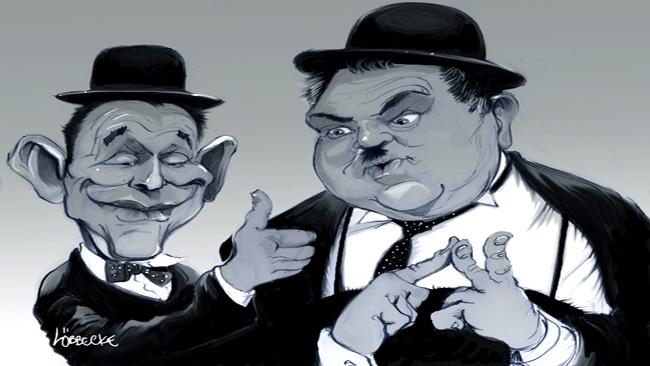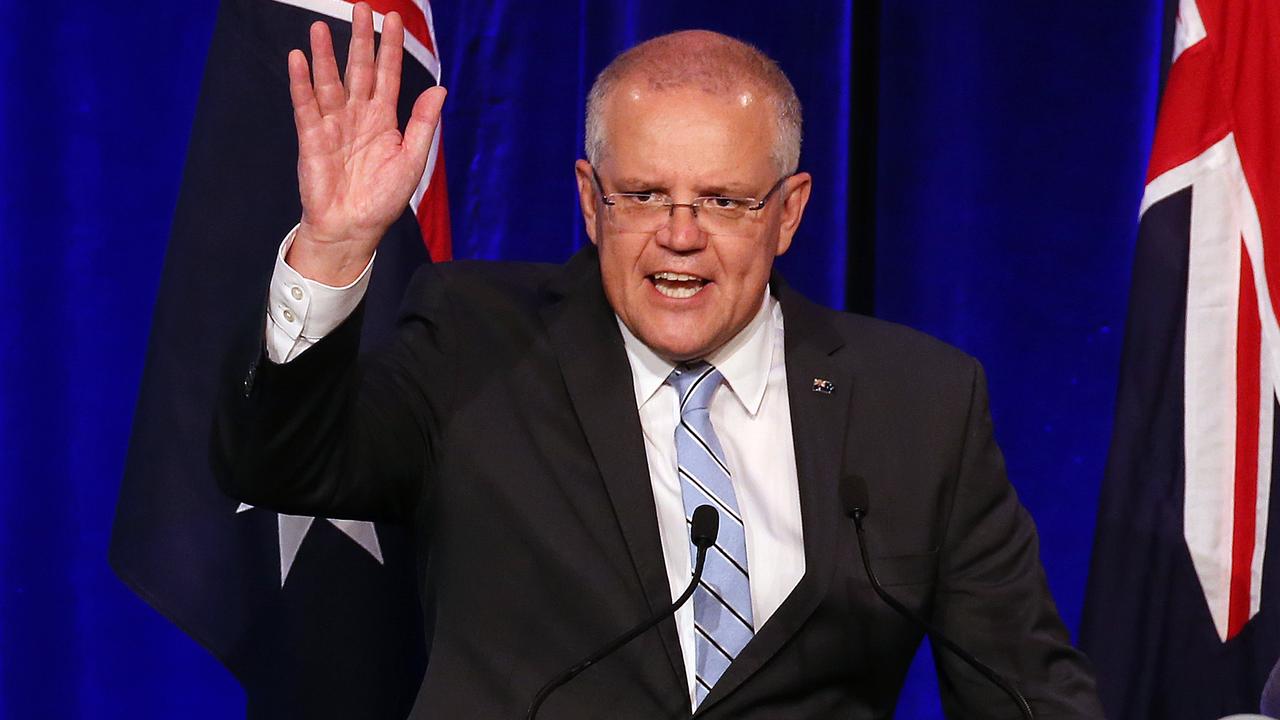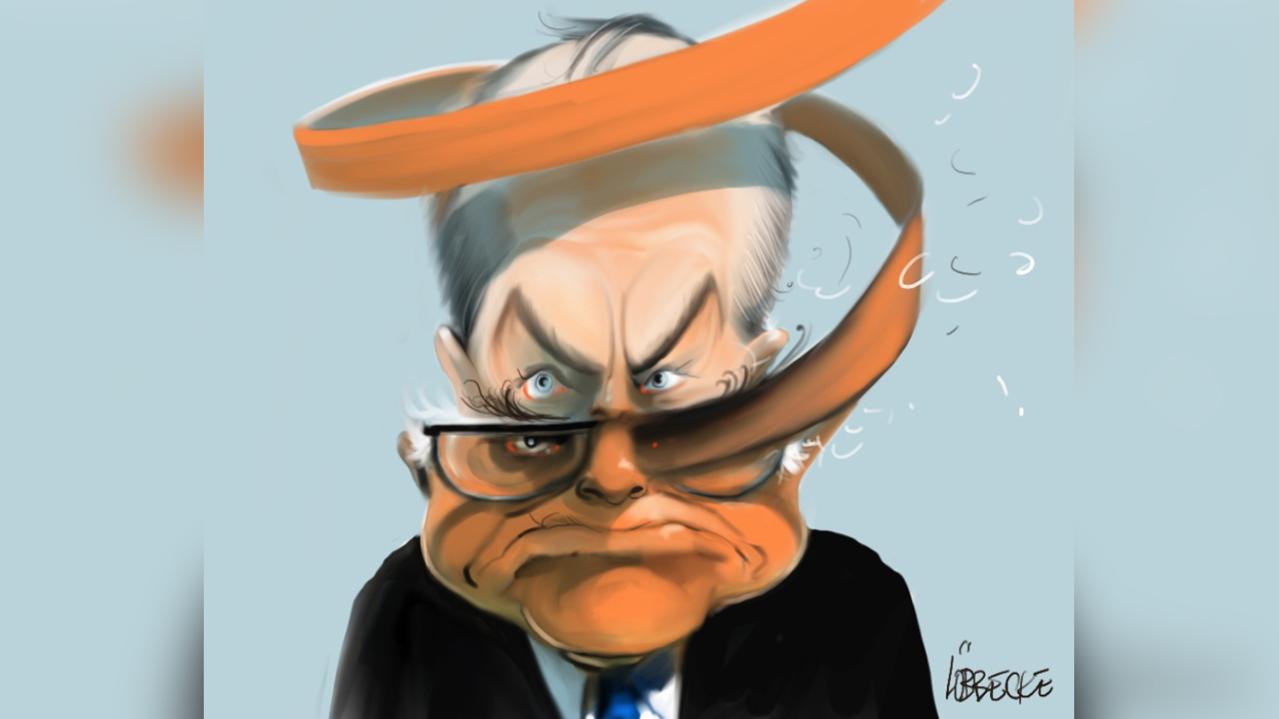Gillard's economy drive exposes Libs' soft spot

IF the Prime Minister stops to consider how she fared in the first week of the parliamentary year, she might be inclined to quote American author Mark Twain: "Reports of my death have been greatly exaggerated". Twain was referring to an obituary of himself which had (obviously incorrectly) been published in the New York Journal. Julia Gillard could adopt the line in response to her many detractors.
In the weeks preceding parliament's return, speculation about the PM's demise at the hands of a Kevin Rudd comeback reached fever pitch. Despite Gillard's condescending dismissal of the leadership rumblings "I leave you to your fervid speculation which doesn't need any facts or any commentary from me for it to continue" they were very real. This commentator (among many others) bought into it, concluding that Gillard's downfall, whether at the hands of the voters or her caucus colleagues, is all but assured.
While I am confident (if not overjoyed) Gillard's demise will, in time, still happen so entrenched are her negatives her downfall will be in spite of this week's developments, not because of them. But if I am wrong, an unlikely Gillard recovery will happen on the back of the approach Labor adopted this week.
The government won the week and it did so in a more meaningful way than simply dominating the theatrics of question time. Gillard changed tack to take on the important role of economic spruiker-in-chief. A bold move, given that even as deputy prime minister she never held a finance portfolio. Gillard wants a national debate on economic management credentials and Tony Abbott, in his typically macho way, declared "make my day".
Perhaps the most interesting thing to come out of the PM's economic offensive is that she led the charge. It was a case of pushing back against the barbs.
Wayne Swan is not known for his rhetorical skills, so it was important he received back-up if the switch to economics was going to overtake leadership speculation and opposition negativity about the government's incompetence.
We are only talking about one week, of course. Labor has had false starts at building momentum before. It needs 10 more weeks just like this one, all in a row, and all without interspersed ill-discipline induced by poor fortnightly polls. History tells us this government won't be able to string together such a run without distractions (Newspoll returns next week), but if it can, one of two things will happen. Gillard will have had her chance, the polls won't shift and the power brokers will need to admit that a change is needed to capture voters' attention. Or the Labor primary vote will show signs of life, the PM will survive and the opposition will come in for more scrutiny than it has so far.
The scenarios in front of us make the three months leading up to the May budget all-important. If a disciplined government can find signs of life in the polls, the momentum from the budget just might change the political setting in the second half of this year, putting significant pressure on the opposition. If the polls don't shift, however, and the budget falls flat, Gillard could find herself out of a job prior to parliament breaking for the winter recess: the same time Rudd was rolled as leader two years earlier.
The importance of the PM's switch to economics is timing and contrast: timing ahead of global economic threats spilling over into a second GFC; contrast with the Opposition's lacklustre economic performance, especially this week.
Labor has many weaknesses in its economic blueprint, but at least it's got one (bank-bashing aside). The Coalition finance team can't seem to agree on when they will return the budget to surplus. It can't tell the public how or from where it will find its $70 billion in pledged budget savings. It won't rule out using the same accountants who costed its policies at the last election, despite the firm having been fined for breaching professional standards on that very piece of work. And it continues to rely on its discredited costings from 2010.
Abbott's blue-collar worksite visits to condemn the carbon tax haven't been matched by a plan to save blue-collar jobs in the wake of the high Aussie dollar. Conversely, he doesn't have the courage to say what all good economic liberals know: Australia shouldn't be producing motor cars. And Abbott's confused messages of fiscal conservatism, coupled with large-scale plans to spend taxpayers' dollars to pork barrel, fuel discontent behind the Liberal lines (at least among the few economically literate members of the party room).
Then there are the personnel problems. Rich economic minds like Malcolm Turnbull and former Howard chief of staff Arthur Sinodinos are kept away from finance portfolios. Sinodinos has been left to languish on the backbench. It makes a joke of Abbott's claims he has his best team in place. Shadow treasurer Joe Hockey and finance spokesman Andrew Robb don't particularly like one another and they certainly do not respect each other. And neither does the business community, who line up to question both men's credentials (and aptitude) to manage our $1 trillion-plus economy.
However, barbs at Hockey or Robb are misplaced. They are stuck selling Abbott's broken economic formula a DLP world view very different to the way Liberals have campaigned on the economy in previous electoral cycles. With the PM now fighting on the economy herself, and not leaving the task to less able lieutenants, it is incumbent on Abbott to do likewise.
The problem is that he doesn't want to take the political risk of offering up a genuine economic blueprint to secure Australia's economic future, because doing so would involve elements of unpopularity. The alternative, however, is a loss of credibility at a time when economics is dominating the public's thinking.
Gillard's lost credibility for truth, promises and loyalty are so serious that they are likely to overshadow Abbott's weaknesses as an economic manager. Let's face it, if the Liberals don't win the next election it will be the most gut-wrenching defeat in the party's history, more so even than 1993.
But the Opposition Leader is taking a chance if he doesn't adapt to this week's changing circumstances.
Peter van Onselen is a Winthrop professor at the University of Western Australia


